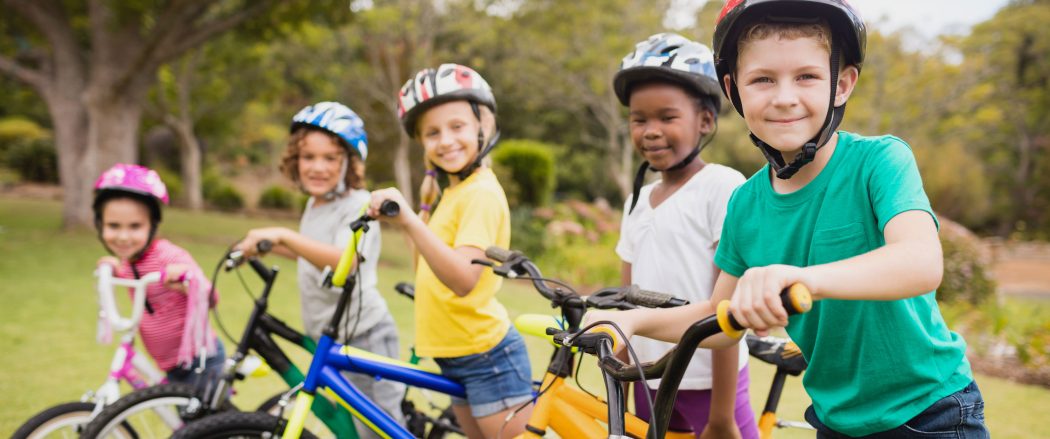To nurture the skills of resilience is key to providing young people with the ability to cope with stress, adversity, failure and challenges. Resilience is evident when young people have a greater ability to “bounce back” when faced with difficulties and achieve positive outcomes.
Resilience enables an individual to identify discrimination; to make a stand against bullying, aggressive and disrespectful behaviour and to seek support.
The issue locally and nationally
Safety
From Primary school upwards educating children to keep safe in different environments and to be aware of the dangers should be delivered in a sensitive and engaging way. Links below contain free educational material ranging from road safety, internet safety, knife crime and gangs, abuse (from sexual to bullying), safeguarding and radicalisation.
For instance, we know nationally, girls worry more or feel more afraid to go to school than boys, although there is less difference between the proportion of boys and girls saying they have been bullied in the last twelve months. This, with the increasing trend of violence and knife crime, of an average secondary school, some 60+ students could be affiliated to a gang means that schools need to recognise and address both bullying, gang and knife crime within their own environments. Policies, education and training can help towards this but should not be so rigid that there can be no compassion shown to an individual who may have underlying poor mental health or other mitigating factors, which has impacted on their poor decision(s).
The research evidences strong links between children being abused through child sexual exploitation and other behaviours such as running away from home or care, self-harm, teenage pregnancy, truancy, substance misuse and bullying. We are also aware children with special needs, looked after children, children leaving care, migrant children, unaccompanied asylum seeking children, forced marriage, those involved in gangs, where there has been a history of abuse, those with parents who have any of the following; disabilities, mental health problems, drugs or alcohol misuse or domestic violence are particularly vulnerable to sexual exploitation.
Those wishing to exploit and abuse children use a variety of online platforms to do so. Therefore part of the work in supporting children to identify abuse and seek help must focus on awareness raising and skills linked to use of a variety of social media platforms and their built in reporting functions.
In both CSE and domestic abuse, the development of inappropriate relationships is of particular concern and problematic due to there often being small age-gaps between the individuals which can also have presence of coercive or controlling behaviour. In the ‘Further resources and links section’ are links to the local safeguarding team and here is the NSPCC’s Speak out Stay safe programme which helps to give a generation of children the knowledge and understanding they need to stay safe from abuse and neglect.
What is known to work
- Providing a comprehensive spiral PSHE programme to help develop children and young people’s safety skills in a range of contexts. This programme should include regular opportunities to develop skills for assessing risk, developing assertive responses, building awareness of influences and developing confidence to ask for help.
- Teaching about safety skills in a range of contexts, relevant to the location and needs of the pupils.
- Offering opportunities to risk management and safety skills through day-to-day classroom management and wider enrichment and pastoral opportunities.
- Providing development opportunities for staff to ensure that they can model and reinforce skills to assess and manage risk and ask for help.
- Raising awareness and skills for staff through training and certification processes. Staff should also be aware of approaches to avoid in safety education e.g. scare tactics, revictimization and should be secure in building positive, safe learning environments.
Support for parents/carers through family liaison and other workers.
Key actions for schools to take
Your workforce
- Schools should up-skill their staff on current local and national safety and safeguarding themes and how to access support.
- Schools should gauge the needs of pupils and the risks most relevant to them through formal and informal methods.
- Ensure that staff are supported with appropriate resources to teach safety skills, following best practice guidelines.
Engage student voices
- Enhancing children and young peoples’ opportunities of providing responsible peer support.
- Create safe environments.
Evaluate and monitor
Evaluation and monitoring can provide motivation by showing the activity or support is effective, meaningful and purposeful. It can also provide the school with evidence of good safe practice.
By the end of primary school pupils should know
There are some aspects of education about safeguarding which are statutory as part of the Relationships Education and Health Education Guidance:
- how to recognise who to trust and who not to trust, how to judge when a friendship is making them feel unhappy or uncomfortable, managing conflict, how to manage these situations and how to seek help or advice from others, if needed.
- the importance of permission-seeking and giving in relationships with friends, peers and adults.
- that people sometimes behave differently online, including by pretending to be someone they are not.
- the rules and principles for keeping safe online, how to recognise risks, harmful content and contact, and how to report them.
- how to critically consider their online friendships and sources of information including awareness of the risks associated with people they have never met.
- what sorts of boundaries are appropriate in friendships with peers and others (including in a digital context)
- about the concept of privacy and the implications of it for both children and adults; including that it is not always right to keep secrets if they relate to being safe.
- that each person’s body belongs to them, and the differences between appropriate and inappropriate or unsafe physical, and other, contact.
- how to respond safely and appropriately to adults they may encounter (in all contexts, including online) whom they do not know.
- how to recognise and report feelings of being unsafe or feeling bad about any adult.
- how to ask for advice or help for themselves or others, and to keep trying until they are heard.
- how to report concerns or abuse, and the vocabulary and confidence needed to do so.
- where to get advice e.g. family, school and/or other sources.
- why social media, some computer games and online gaming, for example, are age restricted.
- where and how to report concerns and get support with issues online.
- about safe and unsafe exposure to the sun, and how to reduce the risk of sun damage, including skin cancer.
- the facts about legal and illegal harmful substances and associated risks, including smoking, alcohol use and drug-taking.
- how to make a clear and efficient call to emergency services if necessary.
- concepts of basic first-aid, for example dealing with common injuries, including head injuries.
Source: Relationships Education RSE and Health Education (DfE) Relationships Education, Relationships and Sex Education and Health Education guidance (publishing.service.gov.uk)
Many elements of a comprehensive safety education programme are not included in the statutory requirements and schools may wish to include learning in the following areas:
- Road safety
- Water safety
- Railway safety
- Fire Safety
- Animal Safety
By the beginning of secondary school pupils should know
- how to: determine whether other children, adults or sources of information are trustworthy: judge when a family, friend, intimate or other relationship is unsafe (and to recognise this in others’ relationships); and, how to seek help or advice, including reporting concerns about others, if needed.
- the characteristics of positive and healthy friendships (in all contexts, including online) including: trust, respect, honesty, kindness, generosity, boundaries, privacy, consent and the management of conflict, reconciliation and ending relationships. This includes different (non-sexual) types of relationship.
- that some types of behaviour within relationships are criminal, including violent behaviour and coercive control.
- what constitutes sexual harassment and sexual violence and why these are always unacceptable.
- the legal rights and responsibilities regarding equality (particularly with reference to the protected characteristics as defined in the Equality Act 2010) and that everyone is unique and equal.
- about online risks, including that any material someone provides to another has the potential to be shared online and the difficulty of removing potentially compromising material placed online.
- not to provide material to others that they would not want shared further and not to share personal material which is sent to them.
- that sharing and viewing indecent images of children (including those created by children) is a criminal offence which carries severe penalties including jail.
- what to do and where to get support to report material or manage issues online.
- the concepts of, and laws relating to, sexual consent, sexual exploitation, abuse, grooming, coercion, harassment, rape, domestic abuse, forced marriage, honour-based violence and FGM, and how these can affect current and future relationships.
- how people can actively communicate and recognise consent from others, including sexual consent, and how and when consent can be withdrawn (in all contexts, including online).
- how to identify harmful behaviours online (including bullying, abuse or harassment) and how to report, or find support, if they have been affected by those behaviours.
- the physical and psychological risks associated with alcohol consumption and what constitutes low risk alcohol consumption in adulthood.
- the physical and psychological consequences of addiction, including alcohol dependency
- awareness of the dangers of drugs which are prescribed but still present serious health risks.
- the facts about the harms from smoking tobacco (particularly the link to lung cancer), the benefits of quitting and how to access support to do so.
- basic treatment for common injuries.
- life-saving skills, including how to administer CPR
- the purpose of defibrillators and when one might be needed.
Source: Relationships Education RSE and Health Education (DfE) Relationships Education, Relationships and Sex Education and Health Education guidance (publishing.service.gov.uk)
that in school and in wider society they can expect to be treated with respect by others, and that in turn they should show due respect to others, including people in positions of authority and due tolerance of other people’s beliefs.
Many elements of a comprehensive safety education programme are not included in the statutory requirements and schools may wish to include learning in the following areas:
- Road safety
- Water safety
- Railway safety
- Fire Safety
- Knives and Gangs
- Prevent
- Animal Safety
Source – DfE
Local Support

Cambridgeshire and Peterborough Safeguarding Adults and Children Board
Multi-agency safeguarding training is important for supporting the collective understanding of local need and for practitioners to be effective in universal services and across the safeguarding pathway. This spans from early help through to targeted and specialist services. To be effective, practitioners need to continue to build their knowledge and skills and be aware of
Read More About Cambridgeshire and Peterborough Safeguarding Adults and Children Board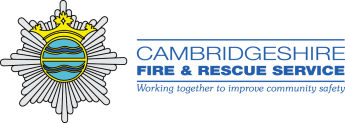
Cambridgeshire Fire and Rescue Service
Teaching fire safety in schools The Fire and Rescue Service provide free fire safety education to children in primary and secondary schools within Cambridgeshire and Peterborough. Our fire crews, community fire safety officers and community champions carry out interactive educational workshops in schools and at fire stations, reaching out to thousands of Key Stage 1,
Read More About Cambridgeshire Fire and Rescue Service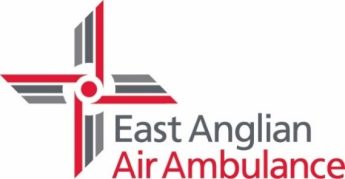
EAAA
Free Basic Life Support Training East Anglian Air Ambulance has funding to provide free CPR and AED training in schools, to staff and pupils (from Yr 5/6). Each session is approximately an hour long but it can be delivered flexibly to fit around school timetables and pupil needs. Sessions can also take place throughout the
Read More About EAAA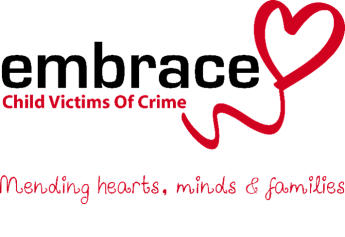
Embrace Child Victims Of Crime
Helping young crime victims and witnesses recover from trauma Embrace Child Victims Of Crime is a specialist support service for young victims and witnesses to crime on behalf of the Police and Crime Commissioner for Cambridgeshire and Peterborough. The aim of the Cambridgeshire-based charity is to help children, young people, and families from all over
Read More About Embrace Child Victims Of Crime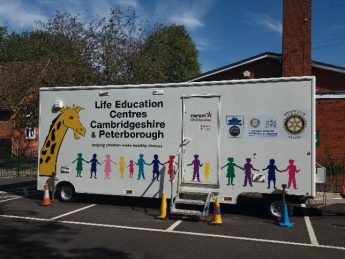
Life Education Cambridgeshire & Peterborough
Life Education is a primary prevention programme focusing on drug and health education. We explore with young people how amazing their bodies are and how the human body can be affected by drugs. We develop understanding around physical and mental health. Through the ‘life skills’ approach, children are enabled to practise how to make healthy
Read More About Life Education Cambridgeshire & Peterborough
Nessie
Nessie is commissioned by Cambridgeshire County Council to provide free support to families of children and young people who self-harm. Nessie will be offering: parent workshops across Cambridgeshire schools, in community settings and online targeted 1-1 parent support telephone and online parent support school based group support for targeted group of young people NESSie is
Read More About NessieNSPCC
Whether you’re looking for advice, or are worried about a child, the NSPCC have got a range of helplines to support you. While we understand that your school will have procedures and policies in place for safeguarding issues, we recognise that if you’re working with and supporting children and families, sometimes you might need to
Read More About NSPCC
Road Safety Education for Schools
Road Safety Education for Schools The Cambridgeshire road safety team have a wide range of road safety resources and schemes available that are specially designed for different school age groups. Early Years Road Safety Education A child can learn a lot about road safety through play. It may be something as simple as identifying traffic
Read More About Road Safety Education for Schools
Road Safety Peterborough – Initiatives and Campaigns
The Travelchoice and Road Safety team at Peterborough City Council offer many free resources, workshops and support to help schools encourage staff, pupils and parents to travel to school in a safe, healthy and sustainable way. We work with a range of expert partners to offer a huge variety of free initiatives, projects, campaigns and
Read More About Road Safety Peterborough – Initiatives and Campaigns
SAFE
We are a voluntary service focused on supporting young people identified by services as being at significant/moderate risk of Criminal Exploitation within Cambridgeshire and Peterborough. We can work with young people up to the age of 17, currently we have no minimum age restriction. We take referrals from a range of statutory and community services
Read More About SAFEResources
Documents
Teacher Guidance
- DfE Cyberbullying advice for Head Teachers
- DfE First Aid Guidance for Schools
- DfE Health and prevention training module (primary)
- DfE Health and prevention training module(seondary)
- DfE Preventing and tackling bullying Advice for headteachers, staff and governing bodies
- HM GOV Working Together to Safeguard Children
- HM GOV Working Together to Safeguard Children A guide to inter-agency working
- Young Minds addressing adversity book
External Links
- Barnardos – Supporting Young People
- Barnardos Helping Families
- Barnardos See, Hear, Respond
- CEOP Thinkuknow – Online and offline safety – Professionals Site
- CEOP Thinkuknow – Parents Site
- ChildLine – Bullying, abuse, safety & the law
- Childline – Somethings not right
- Embrace – Victims of Crime Domesic Violence Support
- GOV.UK County Lines Guidance for Schools
- National Schools Partnerships
- NSPCC Child Protection in Schools Online Course
- NSPCC Criminal Exploitation and Gangs
- NSPCC It’s NOT OK resources
- NSPCC Relationships for Students With Learning Disabilities 11+
- NSPCC Safeguarding self-assessment tool
- NSPCC Safer Recruitment in Education Training
- NSPCC School delivery
- Pet Education Resources – Dog Safety
- Sexual Assault Referral Centre
- Survivors UK – male rape and sexual abuse support
- TES Dog Safety Resources
- UK Safer Internet Centre



